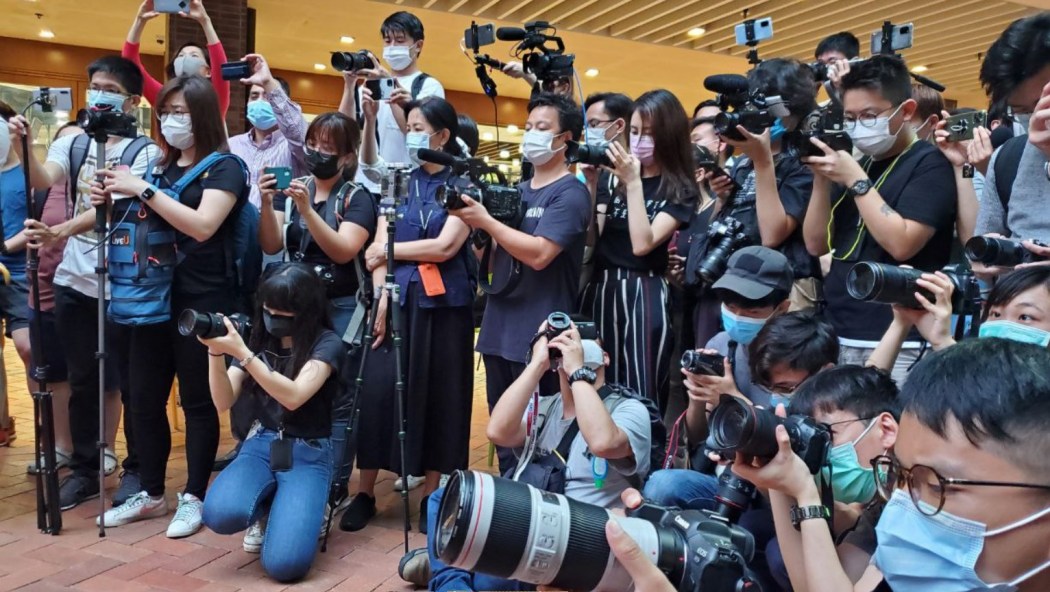The Economist says that the Hong Kong authorities have refused to renew a work visa for their correspondent Sue-Lin Wong, without providing an explanation.

“We regret their decision, which was given without explanation. Sue-Lin is not currently in Hong Kong. We are proud of Sue-Lin’s journalism,” Zanny Minton Beddoes, Editor-in-Chief, said in a statement published Saturday. “We urge the government of Hong Kong to maintain access for the foreign press, which is vital to the territory’s standing as an international city.”
Wong is the latest journalist to be ousted from the city after HKFP’s incoming editor Aaron Mc Nicholas was inexplicably denied a visa last year. Chris Buckley of the New York Times was forced to leave weeks earlier, and Victor Mallet of the Financial Times was ousted from the city in similar circumstances in 2018. None were given an explanation.
A week ago, Beijing claimed press freedom “has not been affected at all.”
“Very sad I won’t be able to continue reporting from Hong Kong. I loved getting to know the city and its people. I will miss you all,” Wong said in a tweet on Saturday.
Wong received an outpouring of support on Twitter. “Another foreign journalist denied a visa in what used to be ‘Asia’s World City’,” tweeted journalism professor Yuen Chan. “Another sad day in Hong Kong’s decline into mainland-style repression. The Economist coverage was always solid, fair – and no longer welcome China,” tweeted author Ian Williams. “The noose is tightening on Hong Kong but still kinda surprising to see it done so blatantly like this,” tweeted Kelvin Chan of the Associated Press.
A graduate of the Australian National University and China’s Tsinghua University, Wong was the China correspondent for the British magazine. She previously worked at Reuters and the Financial Times, where she covered the 2019 pro-democracy protests and unrest.
HKFP has reached out to Wong. The Economist did not comment further.
When asked for the reason the visa was denied, Immigration told HKFP in a statement that it would “not comment on individual case[s]. The Immigration Department acts in accordance with the laws and policies in handling each application.”
Waning press freedom
Working conditions have markedly worsened for journalists in Hong Kong since Beijing imposed its national security law for the city last June, an anonymous survey conducted by the Hong Kong Foreign Correspondents’ Club (FCC) found last week. 56% admitted to self-censoring or avoiding reporting on sensitive topics to at least some degree; 84% believed working conditions have deteriorated. In response to the survey, Beijing said the FCC was “interfering,” adding that the number of registered news outlets had risen.
Explainer: The decline of Hong Kong’s press freedom under the national security law

The city’s press union, foreign governments and international rights groups have all sounded the alarm over shrinking press freedoms in the city, after its largest pro-democracy newspaper Apple Daily was forced to close following a national security crackdown. Police raided the paper, its assets were frozen and its leadership arrested and charged under the law.
At least one veteran journalist has fled the city, citing safety concerns amid what he called a “White Terror” under the national security law. A former bureaucrat now sits at the helm of public broadcaster RTHK, which has been instructed to use terminology on Taiwan approved by Beijing.
Support HKFP | Policies & Ethics | Error/typo? | Contact Us | Newsletter | Transparency & Annual Report | Apps
Help safeguard press freedom & keep HKFP free for all readers by supporting our team

LATEST FROM HKFP
HKFP has an impartial stance, transparent funding, and balanced coverage guided by an Ethics Code and Corrections Policy.
Support press freedom & help us surpass 1,000 monthly Patrons: 100% independent, governed by an ethics code & not-for-profit.










